Politics
Why Russia is finding favour in Southeast Asia once again
Published
1 month agoon
By
Ekwutos Blog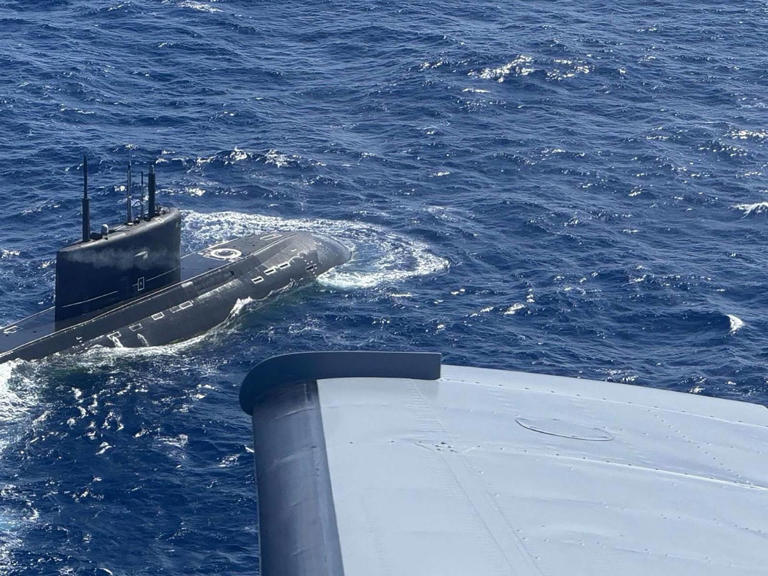
As Russia seeks Global South partners and the war in Ukraine drags on, Southeast Asian states are rekindling ties with the Kremlin
“That’s very concerning. Any intrusion into the West Philippine Sea, of our [exclusive economic zone], of our baselines, is very worrisome,” said Philippine President Ferdinand Marcos Jnr, following reports of a Russian submarine’spresence within Philippine-claimed waters. Philippine navy spokesperson Roy Vincent Trinidad shared that officials in Manila were “surprised” because the submarine was “very unique”.
The Russian submarine in question is believed to have been the kilo-class, diesel-powered Project 636.3 variant, equipped with a missile system that boasts a range of 12,000 kilometres (7,456 miles). However, some were quick to downplay the incident, since there was nothing particularly illegal about the submarine’s presence.
Under international law, foreign military vessels enjoy freedom of navigation within the 200 nautical miles exclusive economic zone of coastal states. Moreover, even Filipino officials admitted that the Russian submarine crew had clarified that they needed to temporarily surface due to bad weather en route back to Vladivostok.
Do you have questions about the biggest topics and trends from around the world? Get the answers with SCMP Knowledge, our new platform of curated content with explainers, FAQs, analyses and infographics brought to you by our award-winning team.
Nevertheless, the alarmed response from Manila underscores growing tensions between Russia and US allies such as the Philippines, which have squarely backed Ukraine in the war.
Russia’s “no limits” partnership with China and its joint exercises with the Asian superpower in the South China Sea earlier this year have spooked US allies, which fear growing military cooperation between the two countries in the Western Pacific.
Across the broader Southeast Asian region, however, Russia is enjoying a second wind by, for example, exploiting anti-Western sentiment in the Global South as the conflict in Gaza rages on. If anything, Russian President Vladimir Putin has a cult following among both regional elites and the broader masses. In countries such as Indonesia and Vietnam, most people polled by a Globescan online survey are betting on Moscow in its current conflict with Kyiv.
Intent on steering clear of US-China rivalry, countries also want to maintain robust ties with other powers such as Russia, which has no territorial and maritime disputes in the region. Despite Western sanctions and major reversals on the battlefield, Russia’s defence industry is still keen on maintaining a major foothold in Southeast Asian markets.
After years of steadily expanding its influence in the Indo-Pacific, Russia’s invasion of Ukraine in 2022 heavily undercut its charm offensive across Southeast Asia. The Eurasian power not only faced sanctions from the West but also from Singapore, a key financial and diplomatic hub in Southeast Asia. Most countries in the region also backed the United Nations General Assembly resolution condemning the all-out invasion of sovereign Ukraine.
Lacking the economic and geopolitical weight of China and India, which maintained robust trade and strategic ties with Russia, much smaller Southeast Asian nations were also wary of running afoul of Western sanctions.

A collector and seller of Russian souvenirs poses at her shop in Hanoi, Vietnam, on June 16. Photo: Reuters
US allies such as the Philippines cancelled a Mil Mi-17 helicopter deal worth at least US$215 million, and other countries announced similar reversals. Indonesia stalled a major defence contract with Russia. Vietnam, which enjoys a free-trade pact with Russia, reconsidered major commercial deals with Moscow.
The International Criminal Court’s decision to issue an arrest warrant for Putin for alleged atrocities in Ukraine further deepened Russia’s isolation. Two years into the conflict, however, Russia is steadily rebuilding its influence in Southeast Asia.
A stalemate of sorts in Ukraine, despite military support from Nato, coupled with Western support for Israel’s unprecedented bombardment of Gaza, has radically altered strategic discourse across the Global South.
With the US and its European allies confronting widespread accusations of hypocrisy, Russia has wasted no time in presenting itself as a pillar of anti-Western resistance, a victim of the transatlantic security alliance’s expansionism and a genuine partner of the Global South.
Moreover, Russia’s doctrine of “sovereign democracy” in which the state led by a charismatic strongman preserves national autonomy against Western interference is particularly attractive to illiberal regimes in Southeast Asia. Former Philippine president Rodrigo Duterte once described Putin as a “hero” and Indonesian President Prabowo Subianto reportedly admires the Russian president.
However, Southeast Asia’s attraction to Russia also has a more pragmatic genesis.
In Vietnam, which heavily relies on Russian submarines and fighter jets, officers steeped in Russian military doctrine have been trained to operate Cyrillic-script weapons systems. It is perhaps no surprise that Vietnam, which hosted Putin earlier this year, is reportedly negotiating a multibillion dollar defence deal despite Western sanctions.
According to an internal document from the Vietnamese Ministry of Finance, which has been exploring ways to circumvent sanctions through joint energy ventures in Siberia, Hanoi is determined to “strengthen strategic trust” even if “Russia is being embargoed by Western countries in all aspects”.
For other non-aligned Southeast Asian nations such as Indonesia and Malaysia, both long-standing customers of Russian weaponry, the prospect of improved US-Russia ties in the coming Trump administration could ease the resumption of historically warm strategic ties with Moscow.
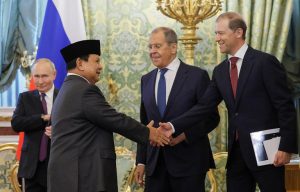
Then-Indonesian president-elect Prabowo Subianto (second left) shakes hands with Russian deputy prime minister Denis Manturov (right) during a meeting with Russian President Vladimir Putin (far left) and Russian foreign minister Sergey Lavrov (centre), in Moscow, on July 31.
Southeast Asian states are already welcoming direct military cooperation, including the first-ever joint Indonesian-Russian naval exercises in the Java Sea last month. Taking place just weeks after Prabowo assumed the presidency, the exercise involved the two sides conducting counterterrorism drills and simulating warfare against unmanned boats.
Meanwhile, countries in the region have worked with Russian energy companies to develop offshore resources, including in contested waters claimed by China.
Non-aligned countries such as Vietnam, Indonesia and Malaysia see Russia as a potential partner in creating a post-Western multipolar order. Some are keen to join the Brics grouping of non-Western powers. A pariah in the West, Putin’s Russia is steadily rebuilding ties with lucrative markets and receptive audiences in Southeast Asia.
More Articles from SCMP
Hong Kong’s Cleo Lai, 2, celebrates new life thanks to heart donated from mainland China
Hong Kong Squash Open: Gohar seals title and world No 1 spot with win, Farag falls short
Understanding social anxiety: symptoms, misconceptions and how to seek help
From baby teeth to adult height: the amazing journey of human growth
This article originally appeared on the South China Morning Post (www.scmp.com), the leading news media reporting on China and Asia.
You may like
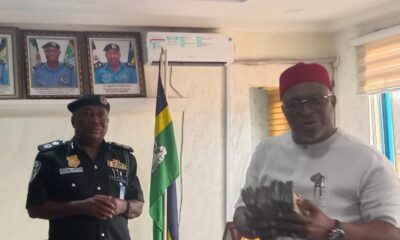

POWA HONOURS HON DR SAMUEL UDEH WITH AN AWARD OF RECOGNITION; hands over to police, huge sum of cash forgotten by a passenger in a bus


Nathaniel Bassey Brings Soul-Stirring Worship to Trump’s Inaugural Prayer Breakfast
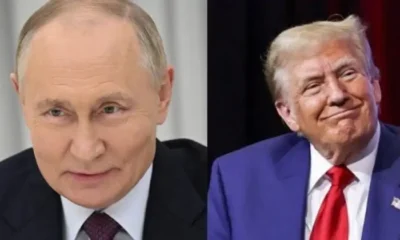

Putin Hails Trump On Inauguration As US President For Second Time, Says Russia Willing To End War
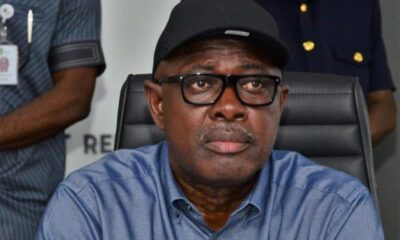

Court remands suspect over alleged assassination attempt on Lokpobiri


“Akpi Is Back”: Speed Darlington Finally Regains Freedom After 2-Months in Jail, Fans React Nosa Oke-Hortons
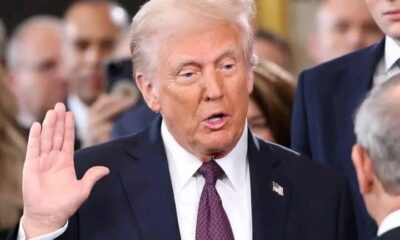

42 Executive Orders By Trump On the First Day
Politics
Putin Hails Trump On Inauguration As US President For Second Time, Says Russia Willing To End War
Published
10 hours agoon
January 22, 2025By
Ekwutos Blog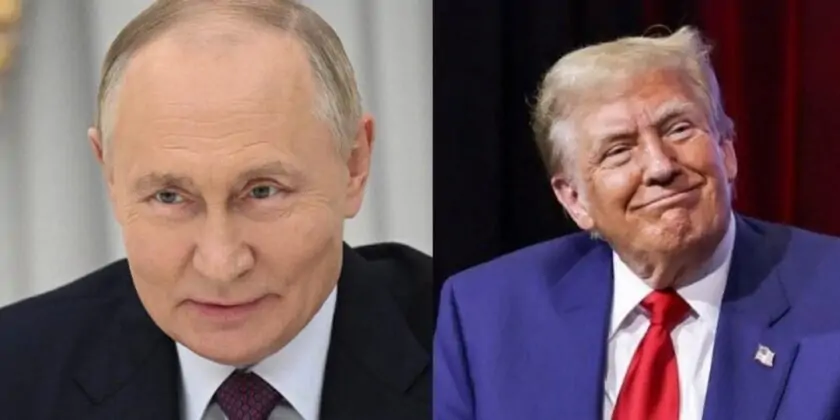
Russia President Vladimir Putin has congratulated Donald Trump as he is being inaugurated as the 47th President of the United States.
Putin on Monday, 20th of January 2025 revealed he was open to dialogue with the new U.S. administration on Ukraine and nuclear arms. He also indicated that Moscow was ready to discuss nuclear arms control and wider security issues.
In a video broadcast, Putin noted that he was interested in a long-lasting peace in Ukraine rather than a short-term ceasefire with the country.
He made the comments during the Russia’s Security Council meeting that was shown on state TV. According to him, “We see the statements by the newly elected president of the United States and members of his team about the desire to restore direct contacts with Russia,” said Putin.
“We also hear his statement about the need to do everything possible to prevent World War Three. We of course welcome this attitude and congratulate the elected president of the United States of America on taking office. “As for the resolution of the situation (in Ukraine) itself, I would like to emphasise that the goal should not be a brief ceasefire, not some kind of period of respite that would allow a regrouping and rearmament of forces, but a long-term peace based on respect for the legitimate interests of all people and all peoples who live in the region.”
Politics
Court remands suspect over alleged assassination attempt on Lokpobiri
Published
11 hours agoon
January 21, 2025By
Ekwutos Blog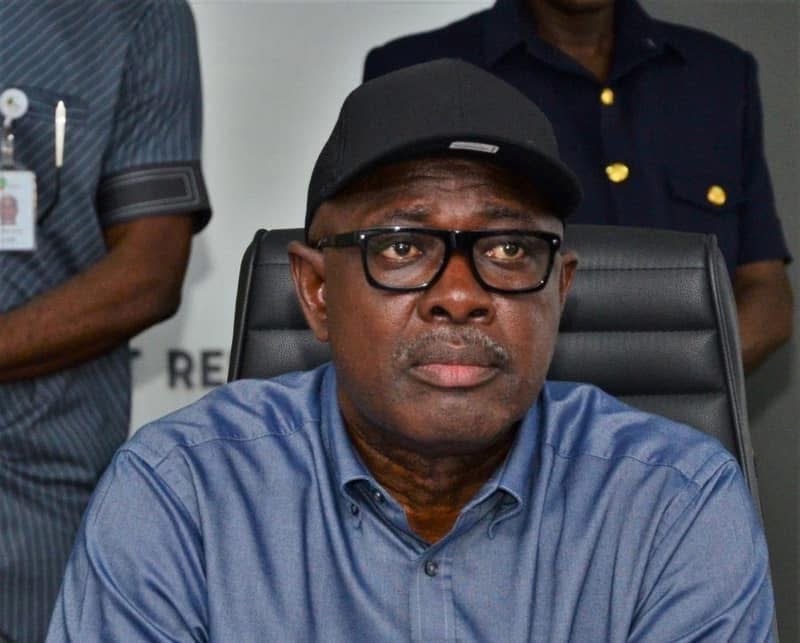
Yenagoa—A Magistrate’s Court sitting in Yenagoa, Bayelsa State, has ordered the remand of a 35-year-old man, Susaine Morgan, over an alleged assassination attempt on the Minister of State for Petroleum Resources (Oil), Senator Heineken Lokpobiri on new year day.
The suspect is also facing charges of unlawful possession of two assault rifles (AK-47).
He was reportedly apprehended at the minister’s residence in Ekeremor town, Ekeremor Local Government Area of Bayelsa State.
The remand warrant, issued by the state Commissioner of Police, Francis Idu, and filed by Police Prosecutor, Stella Jerry-Friday, was approved to allow the suspect’s detention for 30 days at Okaka prison.
This is to enable the investigating team of the police to track and arrest six others now at large.
The charge sheet read: “The defendant was arrested on January 1, 2025, at Senator Lokpobiri’s residence for conspiring with others to commit armed robbery, attempted kidnapping, and for being in possession of two AK-47 rifles.”
The police prosecutor explained that the request for suspect remand was necessary due to the limited power of the police to detain the suspect without a court order.
“The suspect’s detention will prevent interference with the ongoing investigation, especially as six other suspects remain at large,” a police source said.
According to security report, seven of the suspects gained access into the residence of the minister by mingling with the crowd of visitors who came to pay homage.
But information got to the military personnel stationed at the residence of the presence of armed persons among the visitors.
“Due to the large crowd, the soldiers could not open fire but ordered everyone to lie down. It was only the arrested suspect, who was with the bag conveying the weapon, that got arrested. Others mingled with the crowd and escaped,” the source stated.
The other suspects reportedly fired shots as they fled the community, attacked a filling station and carted away N400,000.
Politics
42 Executive Orders By Trump On the First Day
Published
20 hours agoon
January 21, 2025By
Ekwutos Blog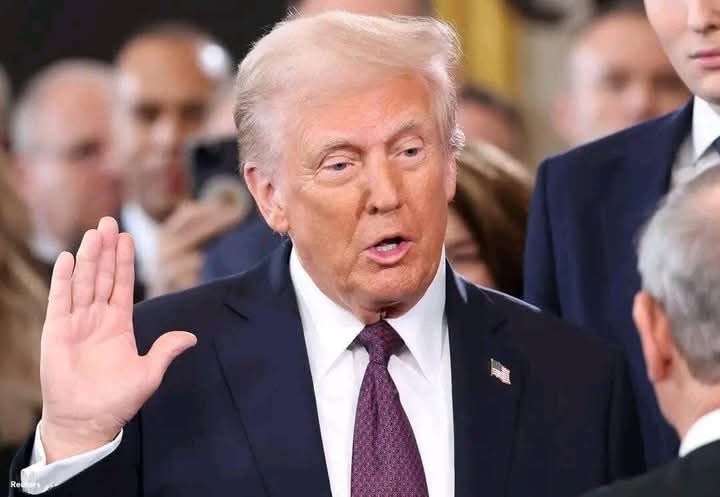
Here is the list of all 42 Executive Orders, Memoranda, and Proclamations Signed by President Donald Trump
1.Declaring a National Emergency at the Southern Border
2.Designating Mexican Drug Cartels as Foreign Terrorist Organizations
3.Reinstating the ‘Remain in Mexico’ Policy
4.Ending Birthright Citizenship for Children of Illegal Immigrants
5.Defending Women from Gender Ideology Extremism
6.Eliminating Diversity, Equity, and Inclusion (DEI) Programs in Federal Agencies
7.Withdrawing from the Paris Climate Agreement
8.Declaring a National Energy Emergency
9.Reversing Electric Vehicle Mandates
10.Implementing ‘Schedule F’ for Federal Employees
11.Relocating U.S. Space Command Headquarters to Alabama
12.Pardoning Individuals Convicted in Relation to January 6 Events
13.Halting Federal Funding for Abortion Services
14.Suspending Security Clearances for Officials Linked to Hunter Biden Scandal
15.Establishing a Federal Bitcoin Reserve
16.Releasing Classified Documents on JFK, RFK, and MLK Assassinations
17.Reversing AI Regulation Policies
18.Imposing Tariffs on Imports from China, Mexico, and Canada
19.Reinstating the Ban on Transgender Military Service
20.Prohibiting Transgender Women from Participating in Women’s Sports
21.Halting Government Offshore Wind Leases
22.Renaming the Gulf of Mexico to the Gulf of America
23.Reverting Mount Denali to Mount McKinley
24.Freezing Federal Workforce Hiring
25.Easing Regulations on Oil and Gas Production
26.Pausing Congress’ TikTok Ban to Seek a U.S. Buyer
27.Reversing Biden-Era Immigration Policies
28.Pulling Out of the World Health
organisations
29.Eliminating Federal Funding for DEI Programs
30.Establishing the Department of Government Efficiency (DOGE)
31.Reinstating the ‘Muslim Ban
32.Ending Birthright Citizenship
33.Reforming the Criminal Justice System
34.Banning Critical Race Theory in Federal Agencies
35.Demanding Increased NATO Contributions
36.Confronting China on Trade Practices
37.Ending the War in Ukraine
38.Supporting Law Enforcement
39.Promoting School Choice
40.Restricting Refugee Admissions
41.Increasing Federal Focus on Fentanyl Trafficking
42.Launching a National Infrastructure Plan.

POWA HONOURS HON DR SAMUEL UDEH WITH AN AWARD OF RECOGNITION; hands over to police, huge sum of cash forgotten by a passenger in a bus

Nathaniel Bassey Brings Soul-Stirring Worship to Trump’s Inaugural Prayer Breakfast

Putin Hails Trump On Inauguration As US President For Second Time, Says Russia Willing To End War
Trending
- Politics11 months ago
Nigerian Senate passes Bill seeking the establishment of the South East Development Commission.

 Business11 months ago
Business11 months agoInflation hits record high of 29.90% on naira weakness

 Politics8 months ago
Politics8 months agoBREAKING: Federal Gov’t Offers To Pay Above N60,000, Reaches Agreement With Labour

 SportsNews11 months ago
SportsNews11 months agoOlympic Qualifiers 2024: CAF Confirms Dates For Super Falcons Vs Banyana Banyana

 Trending3 months ago
Trending3 months agoNYA demands release of ‘abducted’ Imo chairman, preaches good governance
- Business3 months ago
US court acquits Air Peace boss, slams Mayfield $4000 fine

 Politics11 months ago
Politics11 months agoGovernor Hope Uzodinma’s New Cabinet In Imo: The Gainers, The Losers

 Politics3 months ago
Politics3 months agoMexico’s new president causes concern just weeks before the US elections

